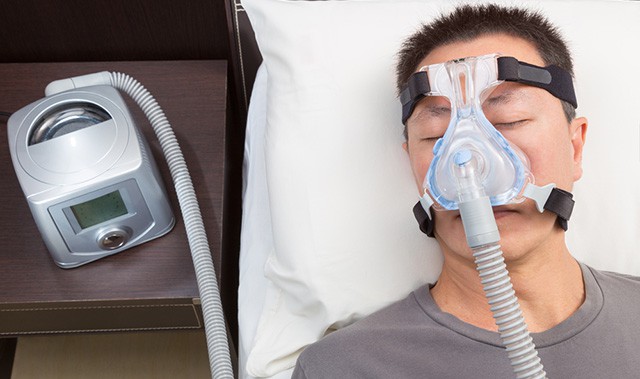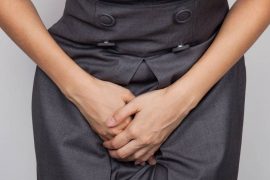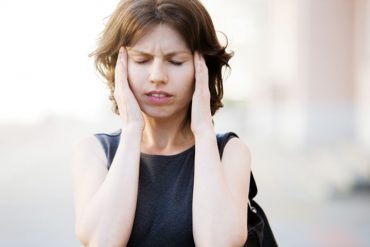How to Prevent Obstuctive Sleep Apnea in Fibromyalgia?
- Obesity plays a major factor in developing obstructive sleep apnea. Therefore, losing a few pounds would be the best thing to do to manage the condition.
- You should avoid smoking or drinking alcohol before sleep because either activities can worsen sleep apnea.
- Practice good sleeping habits such as going to bed early.
- Sleeping on your side instead of on your back. This helps keep your airway open.
Although surgical or pharmaceutical treatment options for obstructive sleep apnea are unavailable, you can still get medical treatment by the means of a CPAP machine. This equipment connects to a mask which you wear over your nose before going to bed. The machine will force a stream of air down your throat to keep your airway clear.
Advertisement





Until several years ago due to a knee injury alway sleep on my side and never apparently snored. I now sleep on my back and snore incessantly I’ve been told by several people. I think l could be one of those to prove this train of thought.
I have obstructive as well clinical sleep apnea and Fibromyalgia. I have noticed with myself as well as with my son that sleeping on your left side, especially, will reduce the amount of snoring as well as stopping your chin from dropping. When your chin drops it
obstructs the airflow, thus the snoring.
I have both fibromyalgia and chronic obstructive sleep apnea, and it is no picnic, even when you use the c pap machine. It is not easy to sleep with a mask that connects to tubing that connects to the c pap. The mask and headgear shift around during the night, sometimes so much that it wakes me up. While it may improve the quality of my sleep when I actually am sleeping, I don’t know if I am getting an increase in the time that I am getting quality sleep. I have also noticed an increase in nightmares, and they seem more vivid. I would love to try a mouth guard in place of the c pap, but my insurance does not cover it.
That’s why I like the nasal cushions. They don’t move around if your fit is right.
Mouth guards are only recommended for minor sleep apnea. I would look into different types of masks. The only time mine moves if I pull it. It fits directly into the nose. I can’t stand any of the face masks due to clostrophobia.
I have a consultation for a mouth guard this week. I’m hoping our insurance pays for it and it gives me the relief I need.
I have fibromyalgia, chronic obstructive sleep apnea, along with a brain malfunction which doesn’t tell me to breathe after my throat closes. So my CPAP is set like a resperator to breathe for me. I use a full mask because I tend to sleep with my mouth open, when I don’t grind my teeth! I bought an ordinary bite guard from Walmart for less than $5 which forms to my teeth and bite through a process of hot and cold water. I suggest cleaning in the morning and store in a denture cup of water to keep from drying out and cracking. It doesn’t effect my sleep apnea at all, but sure helped my jaw pain.
I was diagnosed with sleep apnea a year before being diagnosed with fibromyalgia. The rheumatologist told me that the sleep apnea caused secondary fibromyalgia… I use the CPAP with a nose mask. Not comfortable at all but without it I’m afraid to sleep…
I had sleep apnea that lead to fybromyalgia. I was left undiagnosed for 5 months and during the night I would stay sat in my living room afraid to go to sleep. The rheumatologist says it caused the fibro…
I have just started this snoring thing and been so loud I’ve woken meself up. I shall look into these guards and see what there Eli’s about